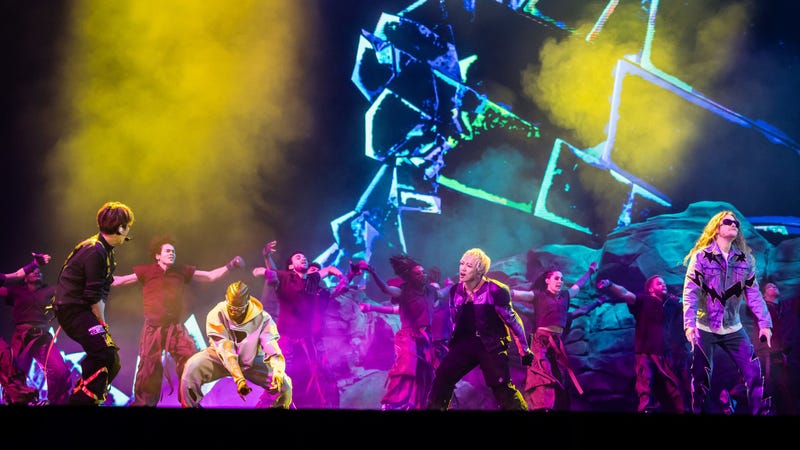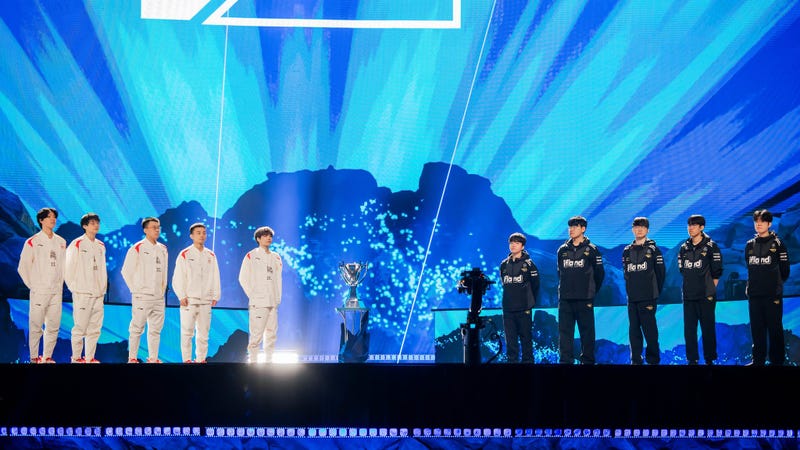The long-lasting popularity of League of Legends is remarkable. Game developers are striving to make a mark in the lucrative live-service game market, but since 2009, the enduring success of this multiplayer online battle arena (MOBA) game has made it a highly sought-after gem that is often imitated, but never replicated.
So, how has developer Riot Games managed to keep fans engaged after so many years? By taking unexpected approaches to portray the League of Legends IP. In 2013, the introduction of the new character Jinx was accompanied by a dedicated music video, which generated enthusiastic fan support, showing a clear audience for these types of endeavors. Just a year later, Riot introduced Pentakill, a virtual heavy metal band within the League of Legends universe, which went on to release three albums.
The real turning point came with the launch of virtual K-pop group K/DA and hip-hop group True Damage. These groups included globally renowned pop stars such as Soyeon from the K-pop group (G)I-dle, Becky G, and Madison Beer. This year, Riot introduced HeartSteel, a virtual boy group featuring artists ØZI, Tobi Lou, and Cal Scruby, as well as Baekhyung from the wildly popular K-pop group, EXO.

Currently, on the League of Legends YouTube channel, 29 of the 30 most popular videos are music videos. The recent World Championship in Seoul exemplified the game’s ability to transcend its medium and become a broader cultural phenomenon. It’s a unique aspect of League that is often imitated but never replicated.
South Korea is widely known as the “capital of esports.” Out of the 110 players competing in Worlds 2023, an overwhelming 40 were South Korean nationals. The two teams competing in the Worlds 23 Finals were China’s Weibo Gaming and South Korea’s T1, with star player Lee Sang-hyeok, also known as “Faker,” representing T1. Faker is considered the GOAT of League of Legends and a point of national pride for South Korea. When attending the Worlds 23 finals, the stadium was packed, resembling the energy of a Super Bowl game.
Given the nation’s passion for esports, hosting the event in Seoul felt like a homecoming—even for a development team that’s largely based in Southern California.
“When we were returning to Korea, it was crucial to have K-pop artists represented on the anthem,” said Maria Egan, Riot’s global head of music and events.
That’s why Riot collaborated with K-pop girl group NewJeans on the opening anthem for Worlds 23, “Gods.” The group’s trendy Y2K sound in songs like “Super Shy,” “OMG,” and “Hypeboy” have propelled them to global fame since their debut last year. “Gods” was an unexpected collaboration and a significant departure from a typical NewJeans track. Instead of bubbly pop, “Gods” is a larger-than-life anthem with soaring vocals and dramatic instrumentation, fitting for a band on the rise.
“At that time, NewJeans were really just starting to break out and become this global phenomenon,” Egan clarified. “And it felt like the right story to tell—of an artist that was taking the world by storm, coming out of Korea.”
The song has garnered more than 40 million views on YouTube since its release, and NewJeans also performed the song live during the Worlds 23 opening ceremony. The music video for “Gods” narrates the story of Kim Hyuk-kyu, also known as Deft, from DRX, a South Korean esports team that won Worlds 22 last year against T1. The music video captures Deft and his team overcoming T1 and Faker.
NewJeans’ opening ceremony performance was a narrative of overcoming challenges. An actor portrayed a typical player, defeating a giant green monster. The elaborate props and computer graphics made for an impressive storytelling display, creating a grand atmosphere that was truly inspirational.
From an external perspective, Riot’s K-Pop collaborations might seem solely transactional, adding an eye-catching gimmick to draw attention to the game. While that element does contribute, these projects have developed a dedicated following among the player base, going beyond just another branding exercise.
“We’re not trying to go into the artists’ audience and borrow them. It’s really about bringing incredible music and pop culture into our world and mixing those elements together,” Egan emphasizes.

Riot’s music arm has become another avenue for introducing people to the game’s universe. Despite having a limited discography, K/DA and True Damage have built massive fan bases—even among those who’ve never played League of Legends.
“Our players are incredibly diverse, and interested in music, fashion and pop culture in many different forms,” executive producer Jeremy Lee adds. “It’s not about creating something that will attract a new audience, but creating something that will really resonate.”
K/DA’s “POP/STARS” song was released back in 2018 and its music video on YouTube has a staggering 576 million views. “I don’t play League like… at all, but those cinematic clips and trailers make me so satisfied and I can’t handle it,” one commenter said. “Now, four years later [I’m] once again listening and most importantly watching this clip. And it’s still amazing.”
In True Damage’s 2019 “GIANTS” music video, another commenter wrote, “I don’t play LoL but I would always listen to this, idk what made me come back 3 years later but it still slaps so hard.”
“Music has this way of transcending time,” Egan adds. “Finding that audience is not the challenge. It’s just expectations and exceeding them.”

